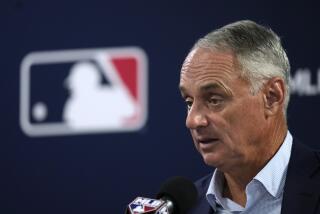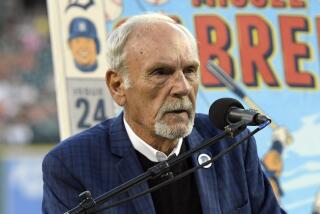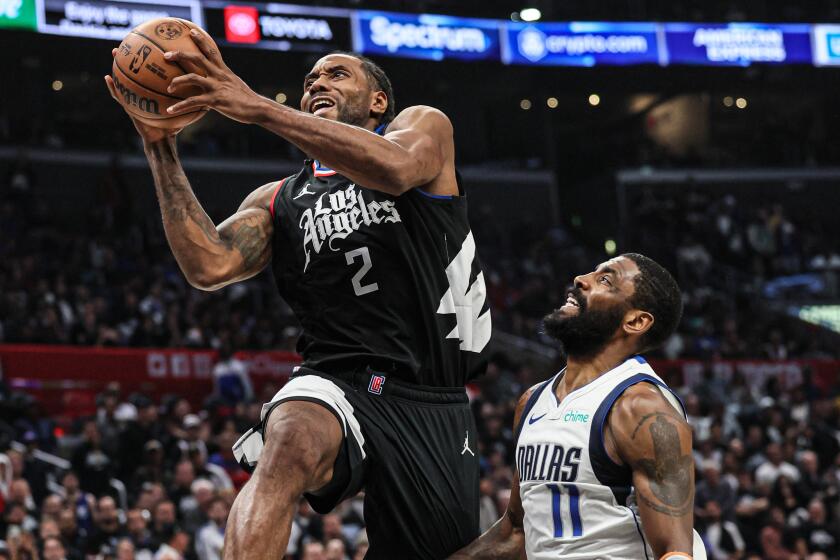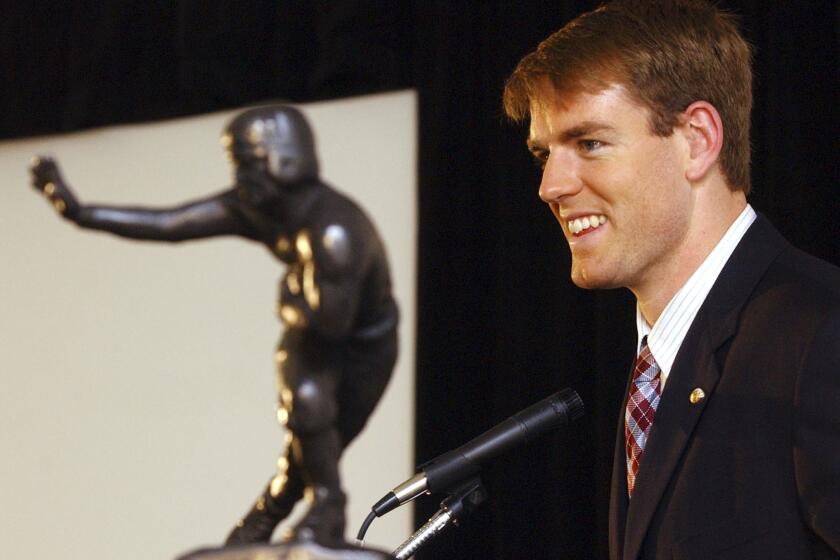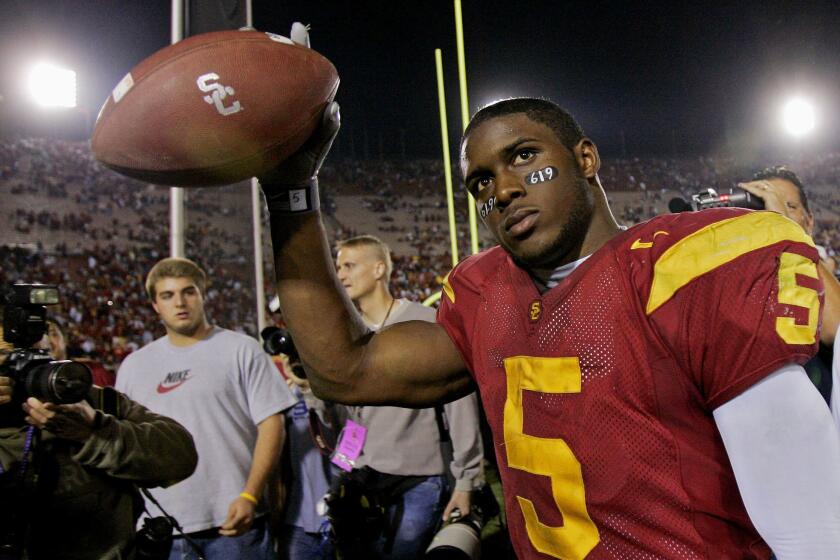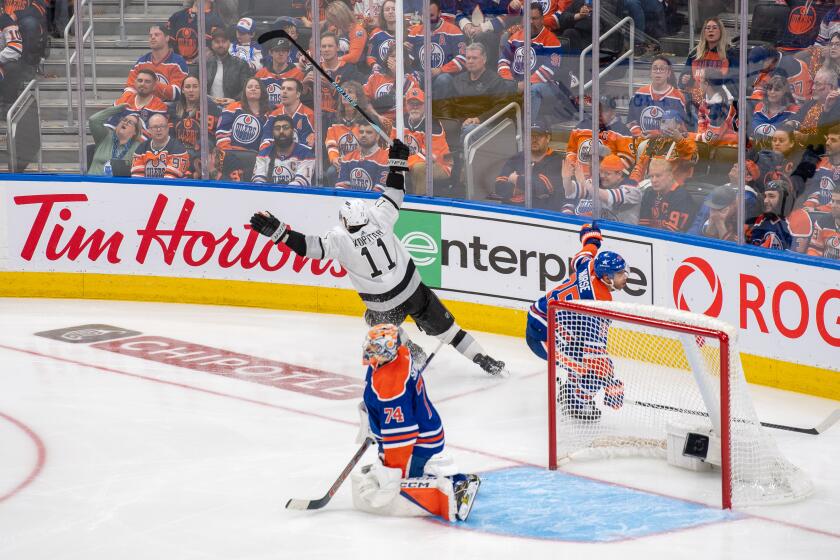Rob Manfred is elected as Major League Baseball’s 10th commissioner
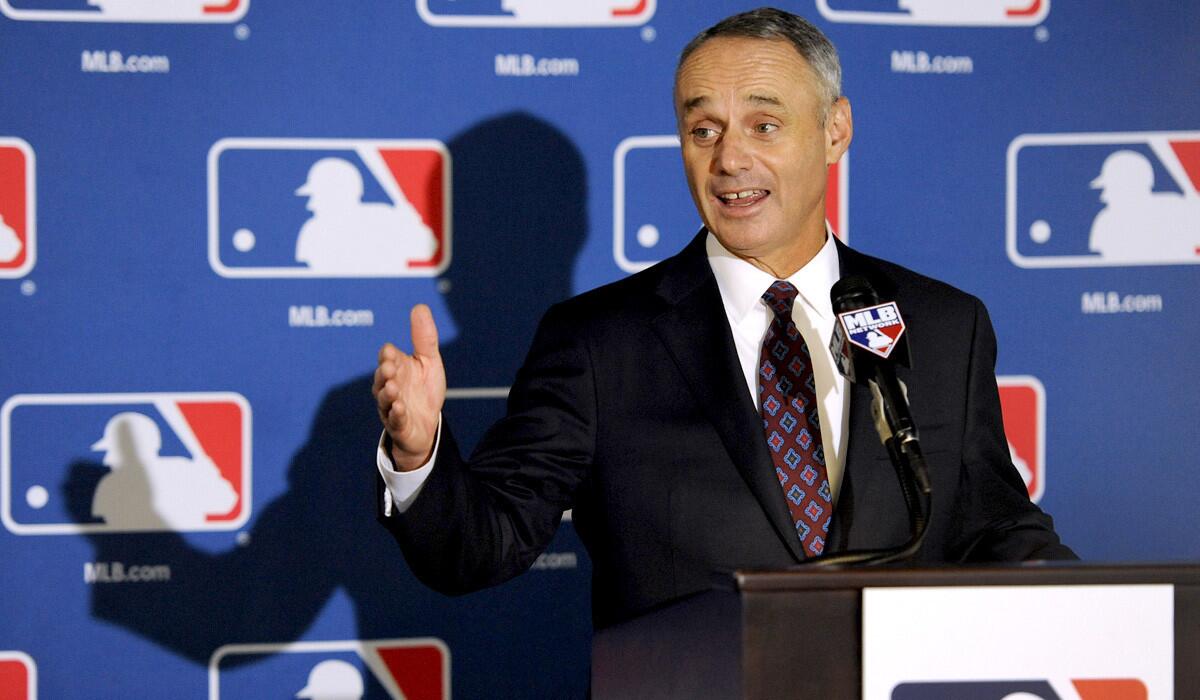
In the end, Bud Selig did pick his successor.
Rob Manfred, the chief lieutenant to Selig, was elected Thursday as commissioner of Major League Baseball. Although Selig had hoped the succession would be more of a coronation, a faction of owners rallied behind Boston Red Sox chairman Tom Werner and deprived Manfred of a first-ballot victory.
Manfred, 55, will become the 10th MLB commissioner, and the first since Selig assumed the role in 1992. Selig is scheduled to retire when his contract expires Jan. 24, 2015.
In an early-evening news conference in Baltimore, where owners held multiple rounds of voting, Manfred joked that he had not had time to consider what his biggest challenges might be.
“I haven’t even been official 15 minutes,” Manfred said.
While he declined to discuss his priorities — even after talking about them in two days of meetings with owners — he did cite “unity” as one. Indeed, that might be Job 1, after as many as 10 clubs reportedly voted against him in the first contested election for commissioner since 1969.
With 23 votes needed for election, Manfred got 20 votes on the first ballot, according to the Associated Press, with opposition from the Angels, Chicago White Sox, Boston Red Sox, Oakland Athletics, Arizona Diamondbacks, Toronto Blue Jays, Cincinnati Reds, Milwaukee Brewers, Tampa Bay Rays and Washington Nationals.
Tim Brosnan, baseball’s executive vice president for business and the third candidate presented to the owners, removed himself from consideration before the first vote Thursday.
The stalemate lasted through several rounds of voting, with the Brewers, Rays and finally the Nationals reportedly flipping to break a stalemate that had lasted for hours. The final vote was 30-0, an olive branch to Manfred from a corps of teams wondering in part whether the man who has negotiated the last three collective bargaining agreements with the players’ union might be too soft on the union.
Manfred, who got along famously with late union chief Michael Weiner, said the key to avoiding strikes and lockouts is “ongoing communication” with the union, rather than waiting to engage until the formal bargaining process starts.
“It’s not about making friends,” Manfred said. “It’s about making sure the other side understands where you’re coming from.”
Manfred, the chief operating officer of MLB for the last 11 months, made his name as baseball’s top labor lawyer. He developed a strong working relationship with the players’ union, negotiating a series of collective bargaining agreements that has made MLB the only major North American sport to play the last two decades without a strike or lockout. That labor peace has contributed to the sharp increase in baseball’s annual revenues — from $1 billion at the start of Selig’s tenure to $9 billion today.
Manfred also served as Selig’s point man on negotiations with the union to implement and then toughen baseball’s drug policy, on the 14 suspensions last year from the Biogenesis investigation, and on forging a strategy designed to get former Dodgers owner Frank McCourt to sell the team.
Selig all but designated Manfred as heir apparent last September, when he appointed him as COO. For the first time in three years, Selig had designated a clear No. 2 in the commissioner’s office.
However, Chicago White Sox owner Jerry Reinsdorf opposed Manfred and led a group of owners — the Angels’ Arte Moreno among them — that settled on Werner as its candidate. That faction encouraged a more confrontational stance against the union and a new vision for baseball’s growth.
The dissension led to the formation of a search committee, politicking among owners that rivaled Congressional deal-making, and the first contested election for commissioner since the San Diego Padres were born.
“While Rob may have not been my choice for commissioner,” Reinsdorf said in a statement, “the conclusion of a very good process was to name Rob as the person best positioned to help baseball endure and grow even stronger for the next generation of fans.”
After Manfred paid tribute to Selig as a mentor, Selig cited Manfred’s temperament, training and experience in all aspects of the commissioner’s office as reasons he would succeed as the new commissioner.
“I have, justifiably, very high expectations,” Selig said.
Follow Bill Shaikin on Twitter @billshaikin
Shaikin reported from Los Angeles.
More to Read
Get our high school sports newsletter
Prep Rally is devoted to the SoCal high school sports experience, bringing you scores, stories and a behind-the-scenes look at what makes prep sports so popular.
You may occasionally receive promotional content from the Los Angeles Times.


